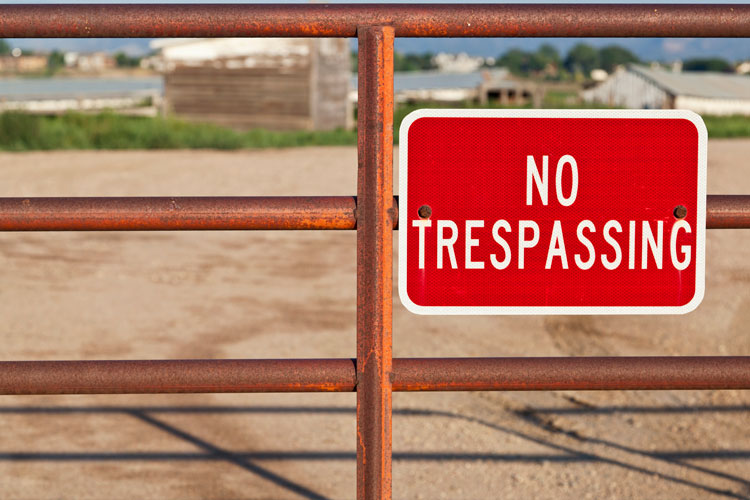
While June Dairy Month is now in the rearview mirror, some animal rights activist organizations will remain focused on the dairy industry. The Animal Ag Alliance has heard reports over the past few weeks of drone activity, suspicious visitors, and social media activism targeting dairy farmers.
These incidents, along with a recently-created map and forum where activists say they will be discussing farms and plants, has brought more attention to the importance of farm security. While you should not panic about the threat of activism, you absolutely should make farm security a part of your business plan and know what to do if you face issues.
The first and most important thing is to make sure that you are proud of and stand behind everything that is done on your farm every day. Follow industry guidelines such as the FARM Program for animal care, environmental stewardship, antibiotic use, and workforce development. Train your employees and anyone else who handles your animals on proper care and how to immediately report any concerns they may have. The best thing we can do is make sure we are doing the right thing regardless of who is watching and be transparent about it with our customers and consumers who genuinely want to know more about the dairy industry.
Unfortunately, you can be doing everything right and still be targeted by activist groups because they are opposed to animal agriculture even existing, regardless of how well it is done. When it comes to farm security, it’s about being aware of potential issues and keeping an eye out for suspicious activity. Basic recommendations include:
- Make yourself a harder target. Gates, locks (that actually get locked), fencing, motion-sensor lighting, and security cameras make your property less desirable to intruders. Install “no trespassing” signage around the perimeter of your property.
- Have a process for handling visitors. Many farms love to welcome people for farm tours. That is a wonderful thing, but we do need to be cautious about who is coming onto our farms and what their intentions are. Activists will use any range of excuses to get onto a farm, including misrepresenting their identity (saying their kids would love to see a calf up-close or claiming to be with a supplier, for example). Once they are on the farm, they might try to take pictures or videos they can use against you or even steal animals.
If you offer farm tours, require them to be scheduled in advance and evaluate all tour requests carefully. Be cautious about anyone who just shows up and asks for access to your property; ask plenty of questions and verify their claims with external sources. Do not allow anyone to walk around your farm unaccompanied.
If you have a suspicious visitor, gather as much information as you can (physical description, name given, vehicle description, and so forth) and report it to your cooperative and state or regional dairy association. - Be careful when hiring. Make sure anyone you are hiring to care for your cattle shares your values and does not have ulterior motives that would distract from that important responsibility. Thoroughly look into all applicants and keep an eye out for red flags.
- Be alert to other suspicious activity. Activists may try to keep “surveillance” on your farm by flying drones overhead or watching from public roads. Know your state and local laws on things like this and what to do if you encounter these issues. Proactively connect with local law enforcement to express your concerns and get their recommendations. Again, if you do experience anything suspicious, record as much information as possible and report it to your cooperative and state or regional association.
The Animal Ag Alliance is here to help keep an eye on activist organizations and share security resources so you can stay focused on farming. For more security information, visit our website or contact me at hthompson@animalagalliance.org.

The author is communications director for Animal Agriculture Alliance.